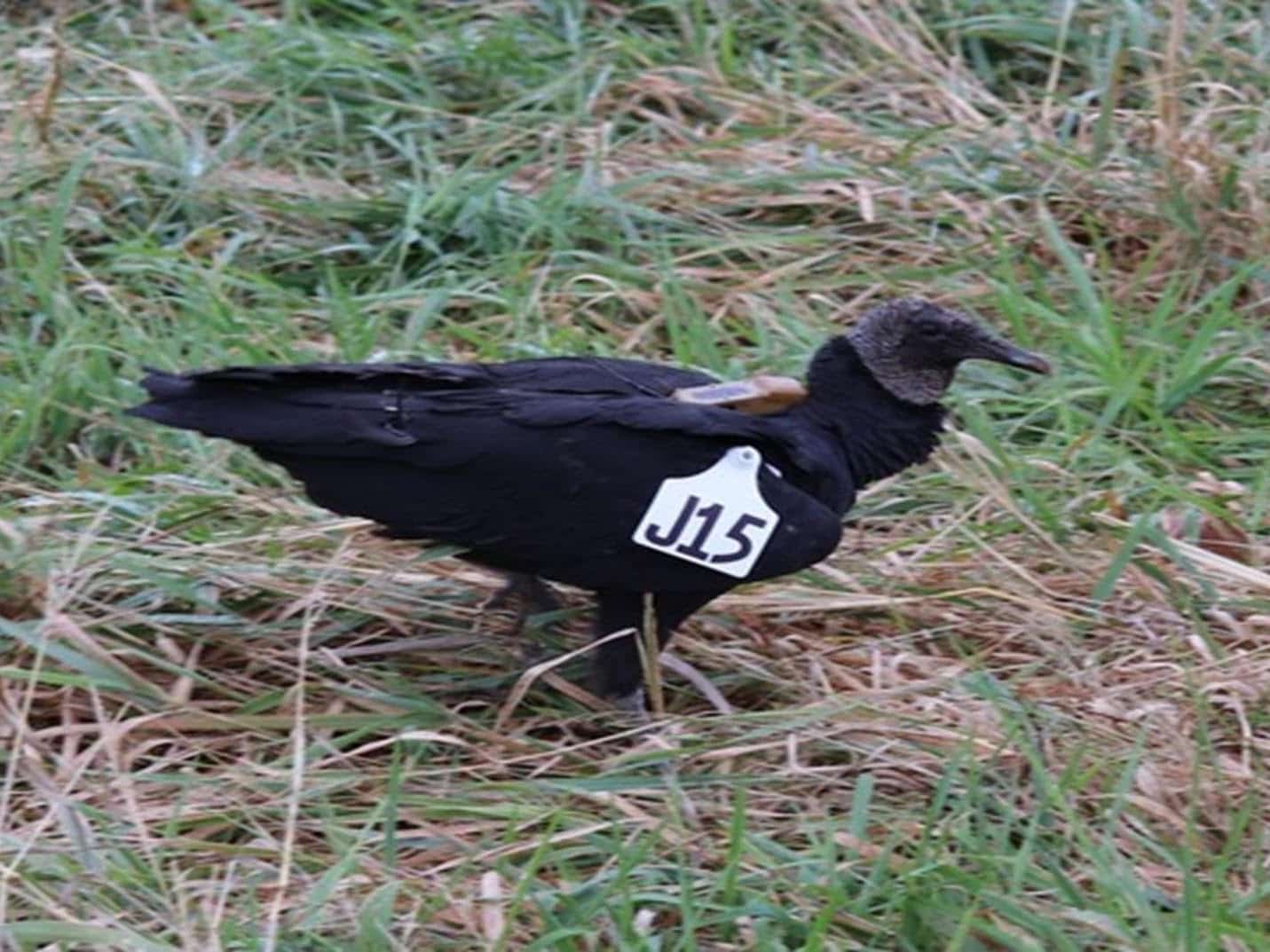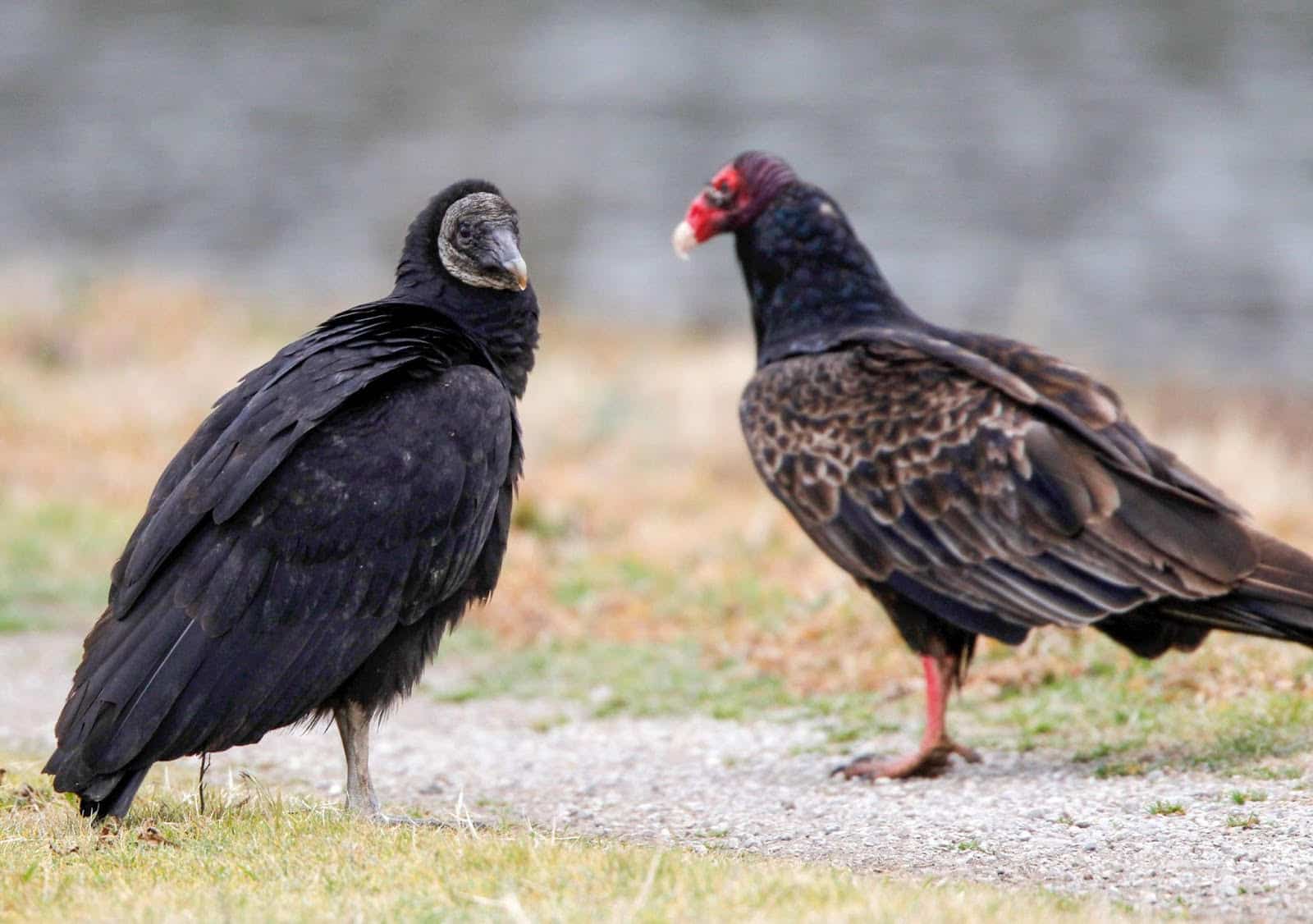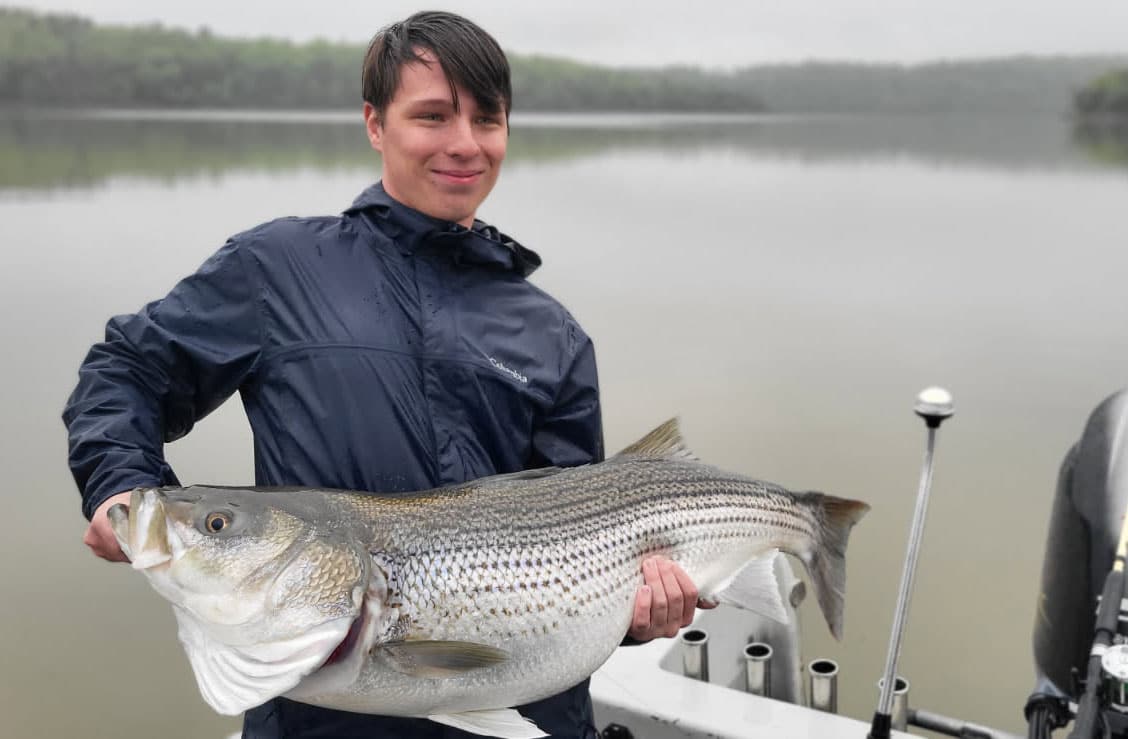USDA black vulture study taking flight in Arkansas, Missouri
ON 05-06-2024

LITTLE ROCK — The Arkansas Game and Fish Commission and U.S. Department of Agriculture need the public’s help collecting sightings of black vultures outfitted with special tags fitted to their wings. The birds are part of a multi-year study to better mediate conflicts with black vultures.
Birdwatchers, livestock owners and landowners are encouraged to report any tagged birds to the United States Geological Survey’s Bird Banding Lab online at reportband.gov. Sightings can also be emailed to USDA Wildlife Biologist Eric Tillman at Eric.A.Tillman@usda.gov.
Black vultures and turkey vultures both play an important role in nature by eating dead animals and removing disease from the landscape. The more aggressive black vultures, however, can cause issues for cattle ranchers and other livestock producers. The species can prey on calves, vulnerable cows, and smaller farm animals such as lambs and goats. Black vultures also are known to cause property damage to vehicles, boats and houses.
“We have seen black vultures destroy the rubber seals around car windows and windshields as well as scratch up the paint when they have gathered around some of the boat ramps and parking areas to wildlife management areas in the state,” Karen Rowe, nongame migratory bird coordinator for the AGFC, said. “They also will destroy roofing and caulking around vents and windows of homes if they establish themselves in one spot too long.”
The USDA trapped 89 black vultures near the Missouri-Arkansas border and marked each with a white tag on their right wing. Each tag has a letter and number that is visible when the bird is perched and in flight. Twenty-eight of these vultures also were outfitted with radio transmitters to track daily movements.
By tracking the movement of these birds the USDA and its partners hope to better understand their movements and reactions to the various management tools used to deter them from nuisance situations.
“While there are a number of management tools we can recommend to people experiencing vulture conflict issues, we don’t fully know how the use of these tools may affect their behavior and movements,” said USDA Wildlife Biologist Eric Tillman. “Do they adjust their home range, alter their roosting network, or permanently abandon the conflict area? Or do they just return after management is completed? With this study, we hope to answer some of those questions.”

Black vultures have a large, black body with a bare, black head. This species frequently flies higher than the red-headed turkey vulture. Turkey vultures have a much better sense of smell and use it to locate carrion that can be miles away. Black vultures, which are much more sight-oriented, will follow turkey vultures to their finds and drive them off of the spot.
Their aggressive nature also can cause many issues with livestock owners, as they may prey upon newborn calves, cows that are giving birth or smaller livestock. Livestock producers may use non-lethal techniques to deter black vultures, such as loud noises, spraying with a garden hose, or using pyrotechnics without a permit. Removing animal carcasses and cutting down dead tree snags and other possible roosting sites can also discourage black vultures.
Black vultures are protected by the Migratory Bird Treaty Act of 1918 and may not be killed without a depredation permit obtained through Arkansas Farm Bureau.
Landowners can request assistance with black vulture damage to livestock or property by contacting USDA Animal and Plant Health Inspection Service – Wildlife Services by calling 501-835-2318.
####
CUTLINES
TAGGED BLACK VULTURE
Special tags do not hinder flight and are readable at a distance when the bird is perched. A few also were outfitted with satellite transmitters. Photo courtesy USDA.
BLACK AND TURKEY VULTURE
Black vultures have all-black heads, while turkey vultures have red heads with virtually no feathers. AGFC photo.
Recent News

Arkansas Wildlife Weekly Fishing Report
Apr. 24, 2025

Contenders take aim as shooting sports regionals begin
Apr. 23, 2025
Subscribe to Our Weekly Newsletter E-mails
Don’t miss another issue. Sign up now to receive the AGFC Wildlife Weekly Newsletter in your mailbox every Wednesday afternoon (Waterfowl Reports are published weekly during waterfowl season and periodically outside the season). Fishing Reports arrive on Thursdays. Fill in the following fields and hit submit. Thanks, and welcome!
